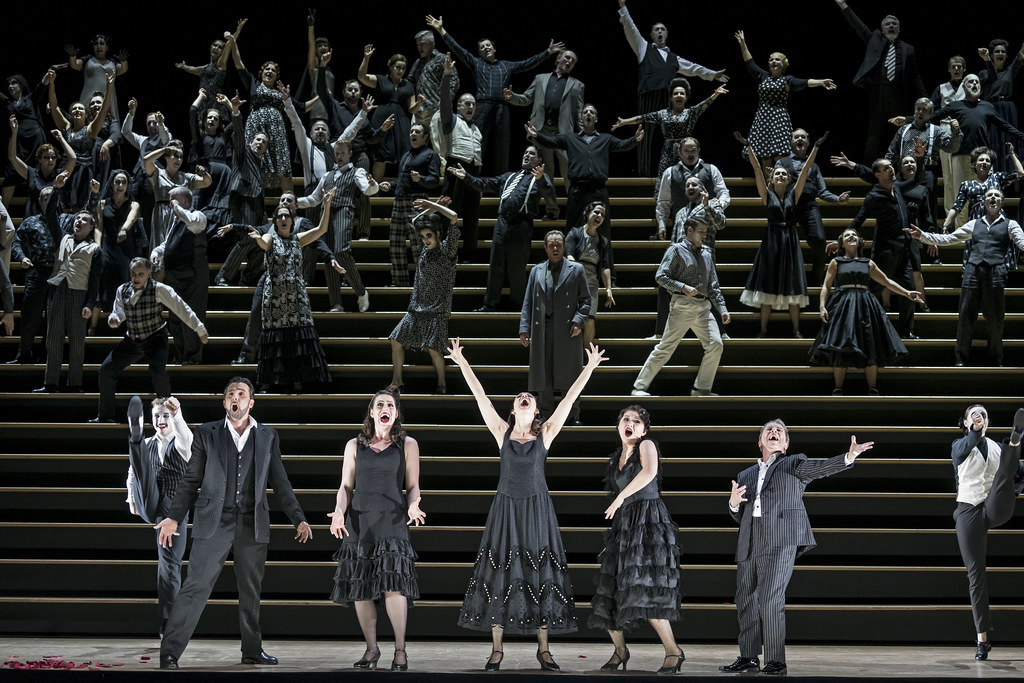Carmen, but not as I knew it. The fast paced overture lured me into a false sense of security - Bizet's Carmen. That security was shattered when the drama began. There was a single staircase on stage, nothing else - no props, no backdrops, nada. Dialogues were replaced by a French monologue of the drama told in third person tense.

Vocally the singers were very good. Anna Goryachova was an energetic and alluring Carmen. Francesco Meli was a straight acting Don Jose. The boys made a great sound and the main chorus was punchy. The choreography took advantage of the stair case with lots of creative movements.

Now, the music. Indeed much scholarly work went into this production of Carmen - focusing on music that was genuinely written by Bizet (and not Ernest Guiraud). In practice, while many of the big arias, duets and choruses were intact, there was less music then what we were used to. In the interest of authenticity I could live with that.
The production was a different matter. This production was directed by Barrie Kosky with dramaturg by Zsolt Horpácsy. They took a distanciation approach - pairing back everything and leaving the audience facing just the performers. As an intellectual exercise, that was interesting. As an opera, it was cold and lacking in emotions. None of the passionate moments between Carmen and Don Jose was believable. Nor was Micaëla's plea (Kristina Mkhitaryan) in Act 3. Right at the end of the opera, the "stabbed to death" Carmen stood up and gave a shrug. The audience laughed.
I think more work is needed to make the most of this authentic score. Perhaps the dialogue could have been updated with some modern adaption (such as Die Fledermaus). But as it stands, this production left me cold.

Vocally the singers were very good. Anna Goryachova was an energetic and alluring Carmen. Francesco Meli was a straight acting Don Jose. The boys made a great sound and the main chorus was punchy. The choreography took advantage of the stair case with lots of creative movements.

Now, the music. Indeed much scholarly work went into this production of Carmen - focusing on music that was genuinely written by Bizet (and not Ernest Guiraud). In practice, while many of the big arias, duets and choruses were intact, there was less music then what we were used to. In the interest of authenticity I could live with that.
The production was a different matter. This production was directed by Barrie Kosky with dramaturg by Zsolt Horpácsy. They took a distanciation approach - pairing back everything and leaving the audience facing just the performers. As an intellectual exercise, that was interesting. As an opera, it was cold and lacking in emotions. None of the passionate moments between Carmen and Don Jose was believable. Nor was Micaëla's plea (Kristina Mkhitaryan) in Act 3. Right at the end of the opera, the "stabbed to death" Carmen stood up and gave a shrug. The audience laughed.
I think more work is needed to make the most of this authentic score. Perhaps the dialogue could have been updated with some modern adaption (such as Die Fledermaus). But as it stands, this production left me cold.
Comments
Post a Comment